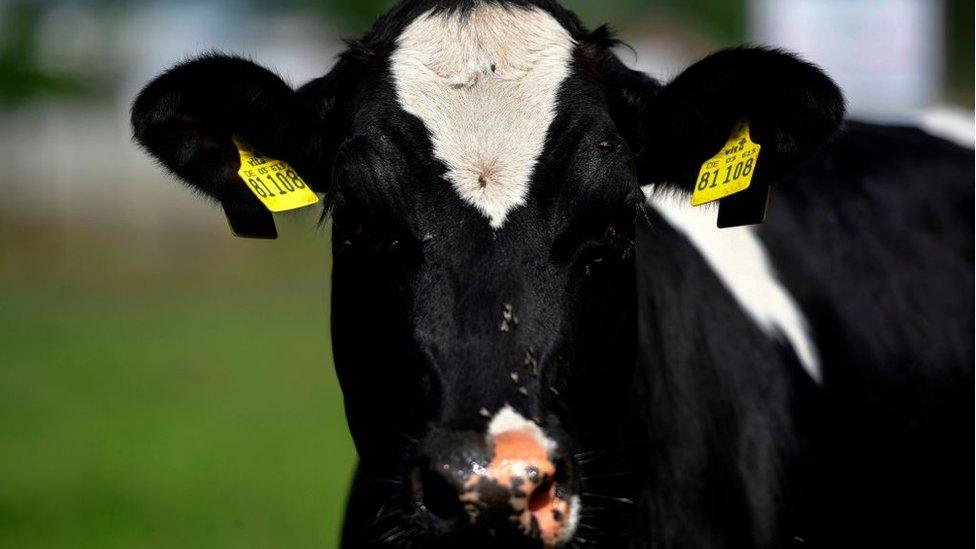Coronavirus: Gütersloh lockdown lifted after German court ruling
- Published
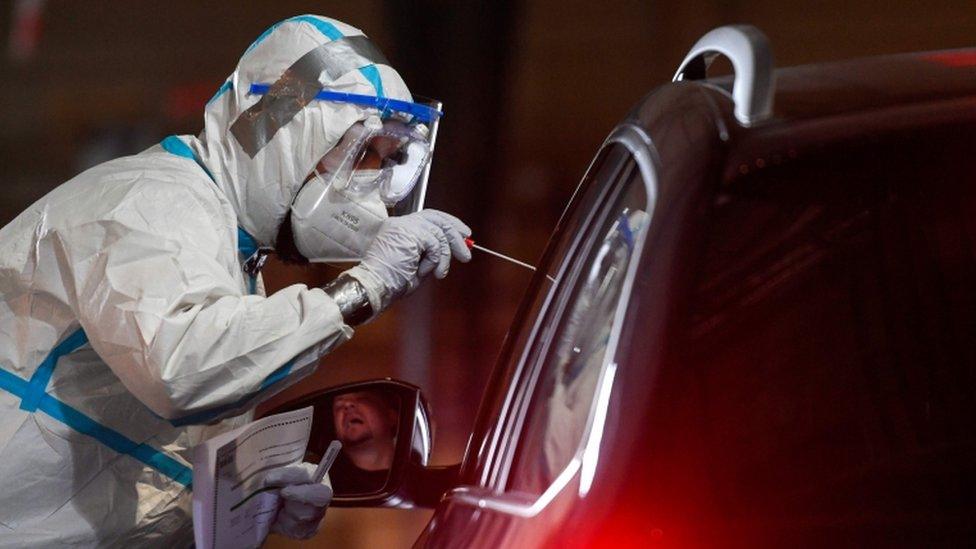
Authorities rolled out testing units to track the outbreak in Gütersloh
A German court has ended a lockdown imposed to tackle a coronavirus outbreak at a meat packing facility.
While a lockdown was "not unreasonable" at first, the court ruled that authorities should have replaced it with more focused measures.
Officials in North Rhine-Westphalia brought back a lockdown around Gütersloh in June after more than 1,500 Tönnies plant workers tested positive.
It was due to end on Wednesday, albeit with the option to extend it again.
But the state's Higher Administrative Court overturned the measures with immediate effect on Monday, calling them disproportionate.
Restaurants, bars and gyms can now reopen in Gütersloh district, and up to 10 people can meet outside - in line with national restrictions. Kindergartens will reopen on Wednesday, officials said.
Since the weekend there have been 44 new confirmed cases. Only two have no connection to the Tönnies facility.
Local media report a joyful reaction to the news from residents. Udo Günner gave the ruling a "thumbs up", according to public broadcaster WDR. "I think it's reasonable to say that we can't let the whole community suffer for what happened in one spot."
"It is crucial for our citizens that the tightened restrictions, which they have endured in a very disciplined manner, are now a thing of the past," Mayor Henning Schulz said.
Separately on Tuesday, North Rhine-Westphalia authorities issued a quarantine order for all members of the Mennonite religious congregation in the city of Euskirchen, after a a family of 12 in the community tested positive.
Officials have closed the Menno Simons School and will test all Mennonites in the area over the next week.
What happened in Gütersloh?
Local officials imposed lockdowns in Gütersloh and the nearby Warendorf district on 23 June after the outbreak at the meatpacking plant - the first restrictions in Germany since the country began lifting nationwide measures in May.
Workers were quarantined inside their residential blocks. Health workers gave out food to those in isolation while mobile testing units spread across the city tracking the outbreak. Businesses closed and strict social distancing rules came back into force.
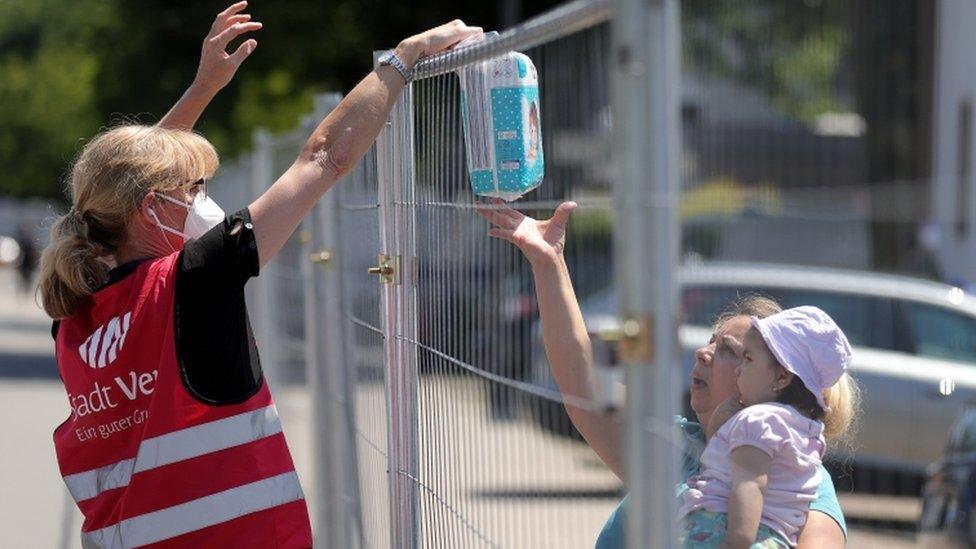
Workers handed out supplies to those in quarantine
When German Chancellor Angela Merkel lifted the national restrictions, she imposed a so-called "emergency brake".
It required local authorities to re-impose rules if cases rose above a threshold of 50 per 100,000 people over a seven-day period.
Authorities lifted the lockdown in Warendorf last week after infections dropped below this key figure. State premier Armin Laschet decided to extend the Gütersloh lockdown for a further week, however, as case numbers remained high.
It was set to expire at midnight on Tuesday - although in theory authorities could extend it once more.
What did the court decide?
A private individual filed a legal objection during the first week of lockdown which the courts rejected. But an arcade company filed a second objection when the restrictions were extended.
Late on Monday, the Higher Administrative Court in Münster ordered the end of the measures with immediate effect, saying the government had had time to bring in targeted rules.
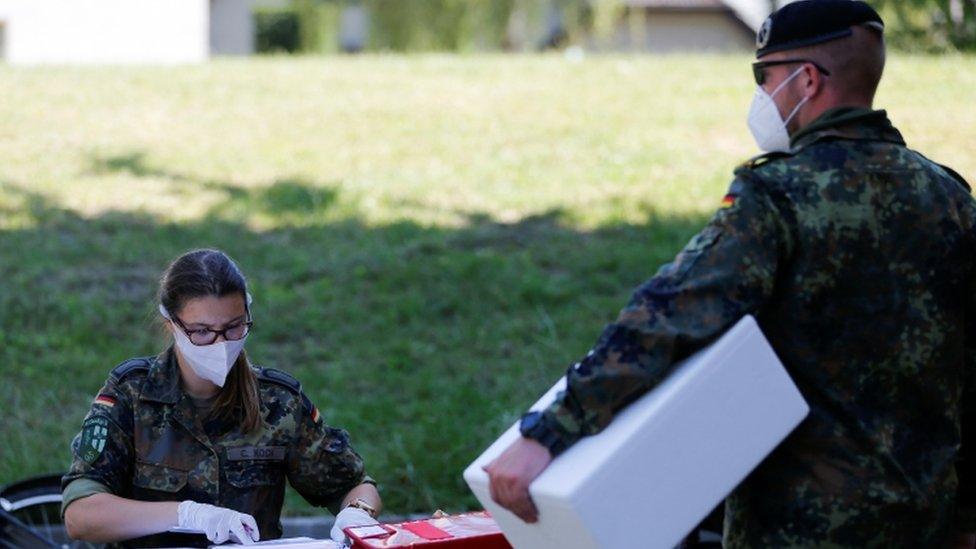
The court ruled that authorities had time to bring in more focused restrictions
Mass testing showed new infections varied "significantly within different parts of the region", the court statement said. "By the time of the present ruling... it should have been possible and desirable to come up with a more nuanced rule."
"I am happy for the people in the district. We now have a bit more freedom again," said Gütersloh district head Sven-Georg Adenauer.
"The lockdown was a burden, now the stigma is over."
Mr Adenauer added, however, that the ruling had no effect on the Tönnies plant itself, which remains shut until at least 17 July.
"We are in constructive talks with the company and one thing is certain: there will only be a restart if everything is safe," he said.
A large number of outbreaks have started at slaughterhouses in Europe and the US, bringing renewed focus on working conditions at the facilities.
What factors determine a potential second wave of Covid-19 infections?
- Published29 June 2020
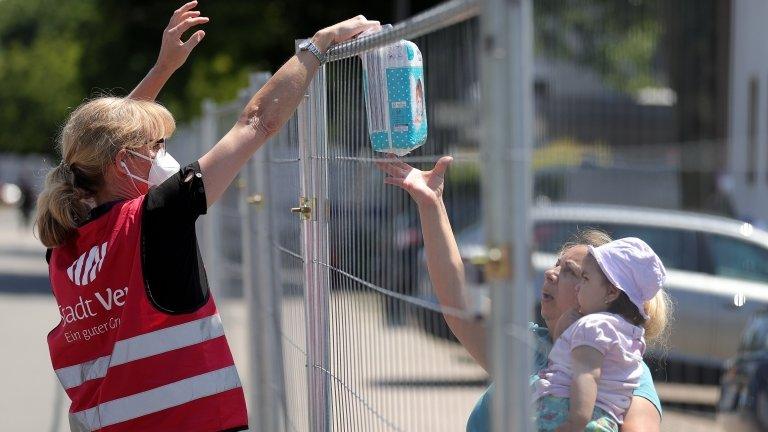
- Published23 June 2020
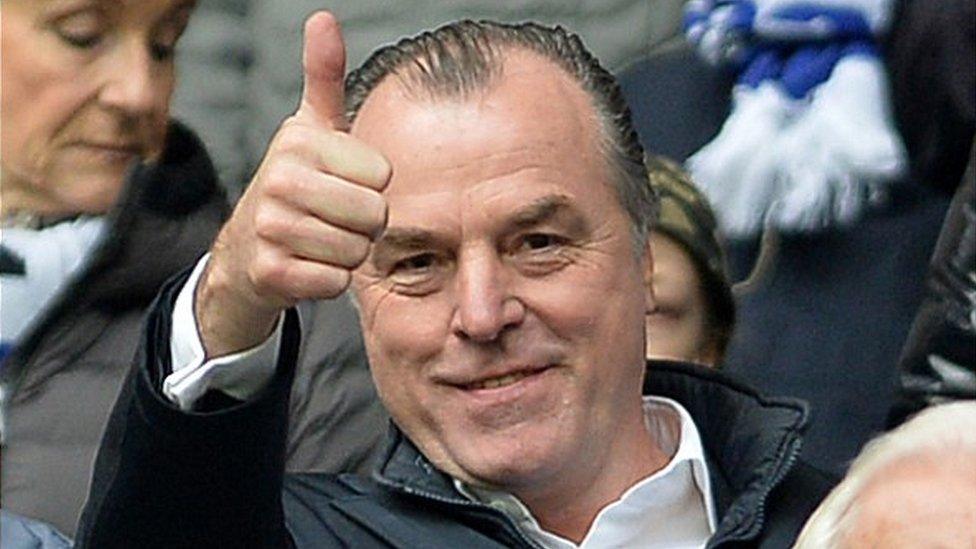
- Published23 June 2020
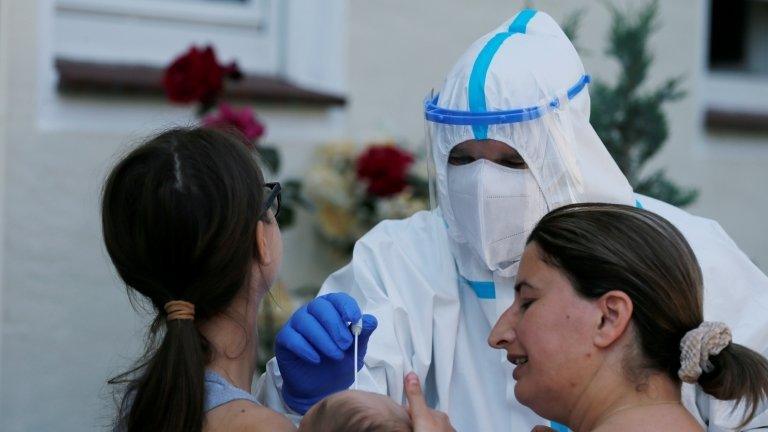
- Published17 June 2020
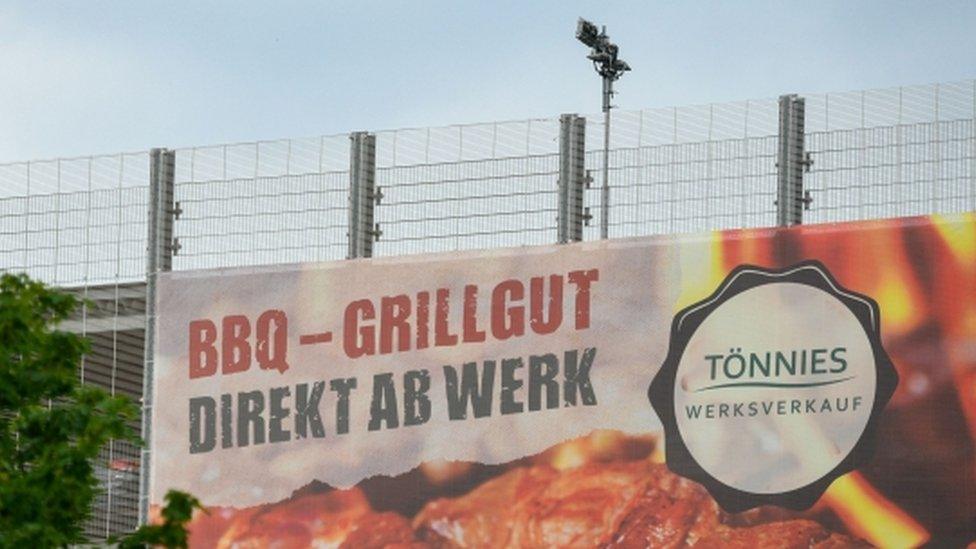
- Published2 June 2020
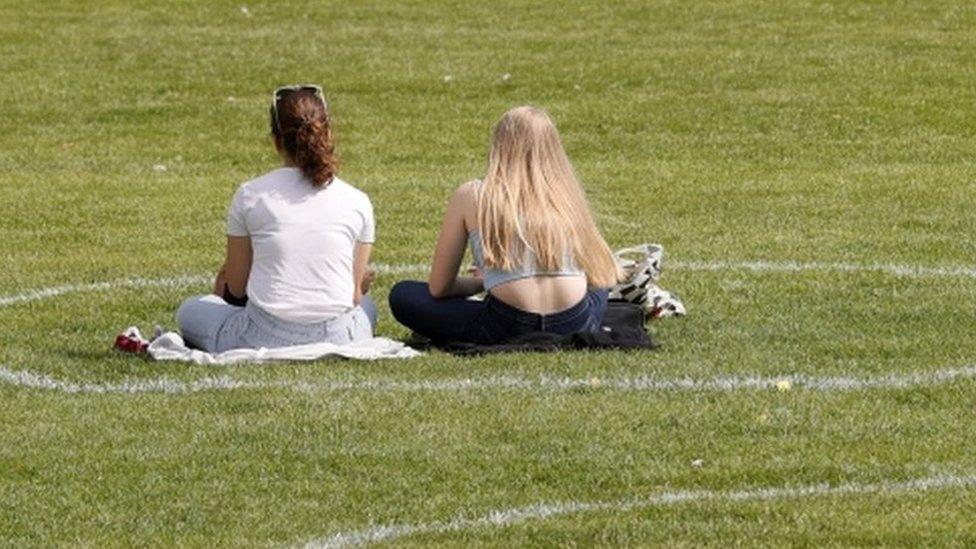
- Published20 May 2020
